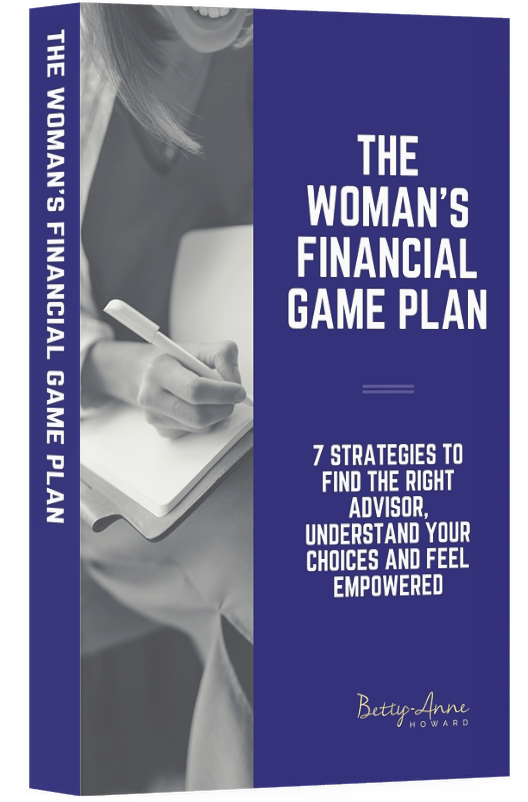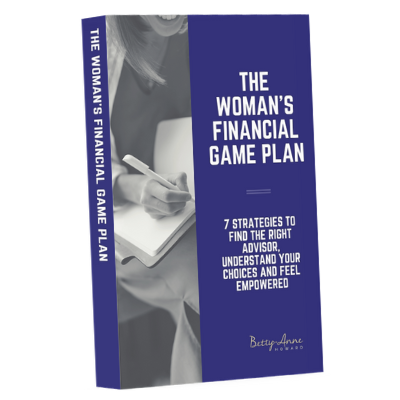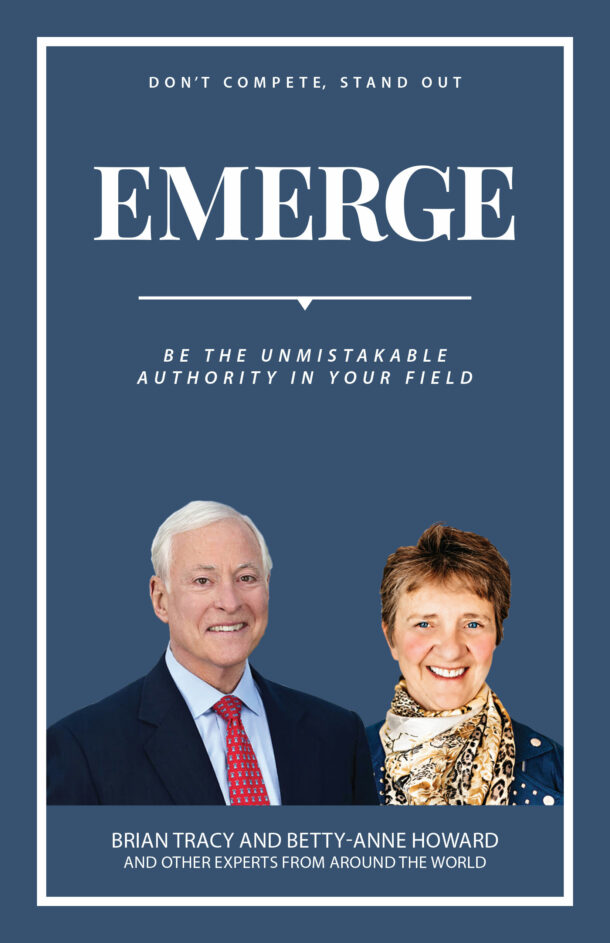
What would you rather focus on in your life – the problems that need to be fixed or the good stuff that’s already working? What’s gone wrong – or what’s gone right? Overcoming past issues, or exploring new possibilities?
When it comes to planning for our retirement or our future goals, emotions can run high. And where we choose to focus, and the language that we use becomes our reality.
This is the core of an Appreciative Inquiry approach to retirement and legacy planning, and it’s a concept I’d like to share with you today.
What is Appreciative Inquiry?
Appreciative Inquiry is a strengths-based, positive approach to organizational change, developed by David Cooperrider in the 1980s. It focuses on leveraging core strengths, rather than seeking to overcome or minimize weaknesses.
The basic premise or underlying principles of Appreciative Inquiry state that:
- In every human system, something works
- What we focus on, and the language we use, becomes our reality
- Reality is created in the moment and there are multiple realities. It is important to value differences.
- The act of asking questions influences us
- People have more confidence & comfort to move to an unknown future when they carry forward parts of the past.
- What we carry forward should be what is best about the past
I have always been intrigued by the principles and processes that come with an Appreciative Inquiry approach to living and making changes in our lives and relationships.
Appreciative Inquiry in Retirement Planning and Legacy Planning
The dilemma I’ve had when it comes to planning for retirement or other future goals is how best to incorporate the financial data with the emotions. When we plan for the future our thoughts and feelings play a significant role alongside the numbers.
Most of the intake forms and “Let’s Get To Know You” questionnaires I’ve found are mainly focused on financial data gathering and only give us a small glimpse into what you’d like your retirement to ultimately look like.
Given my keen interest in holistic financial planning and demystifying the process for my clients, I recently hired Christie Andrus who is a specialist in Appreciative Inquiry to help move me and my team forward in our evolution.
Our goal is to become a Financial Planning firm that highly values the contextual and emotional side of people’s lives. Retirement and legacy planning are not just about spreadsheets or money alone!
Financial Planning is both a science and an art bringing together the numbers with the meaning behind the money.

Our Appreciative Inquiry Process
Our core philosophy has always been that information is power and ultimately, we want you to have all the information you need in order to make informed decisions.
One of the ways we’ve espoused this philosophy is to develop intake questions and processes based on Appreciative Inquiry for our retirement income planning and estate and legacy planning clients.
We’ve had help along the way in developing these questions and processes from Christie as well as great ideas from Conversations Worth Having: Using Appreciative Inquiry to Fuel Productive and Meaningful Engagement written by Jackie Stavros and Cheri Torres. I highly recommend this book if you want to dive deeper into this subject!
The 5 Principles of Appreciative Inquiry
Let’s begin with the 5 Principles of Appreciative Inquiry that we use as our guide and yours in planning for your future. We see this as a collaborative endeavor that will ultimately lead to making your dreams a reality.
Here are the Five Principles:
- Words Create Worlds
- Inquiry Is Intervention
- You Have A Choice In How You See Things
- We See What We Expect To See: What We Look For We Find
- Positive Images And Positive Actions Produce Positive Results
Let’s review each of these principles as they relate to our context of Financial Planning:
1 – Words Create Worlds
The words we use are indicative of how we see ourselves and our situation. This means that in our meetings together we listen to hear the words you use to describe your situation and dreams for the future.
Often we hear words like; “I don’t have any money”, “I will never be able to retire” or “what does it matter who inherits my estate”. And yet these expressions, while common, don’t reflect the reality that most of our clients do indeed have money, and are surprised at how soon they can actually retire.
Another gap between perception and reality is that it matters a great deal who inherits your estate because Canada Revenue Agency (CRA) could become an unintended beneficiary of a lot of everything you’ve acquired over your lifetime.
These gaps between our perception and reality get shorter and smaller as we make our way through the process of acknowledging the words you use to describe your future and exploring how we can adjust that mindset to be more in keeping with the reality of your situation both now and in the future.
Your perception and words reflect the messages we have all internalized based on societal, gender, family, and social factors. Our job is to help shift your perception of the numbers and give you a deeper understanding of how you have come to look at your future in this way.
Words create worlds, and our role as your trusted guide is to help you find the words to create the world you want to live in.
2 – Inquiry Is Intervention
This principle means that if we ask the right, thought-provoking questions that result in meaningful conversations about your future then we’ve already started the process of making the changes necessary to achieve your goals.
If we ask closed-ended questions or what we call the “one-off” question that abruptly ends the conversation we aren’t doing you any good.
We believe that engaging in meaningful conversations and exploring your thoughts and feelings about your future has to be the starting point for this type of engagement.

3 – You Have A Choice In How You See Things
Viktor E. Frankl said it best in his influential book, Man’s Search for Meaning. We can choose how we cope with suffering in life, and find meaning in it while moving forward with renewed purpose or we can choose not to. The point is, we have a choice.
Most of us have suffered from some type of adversity, challenge, or even abuse in our lives. Many of us can become stuck in the belief that we don’t deserve a future filled with hope and prosperity, going beyond surviving to thriving.
Our goal is to expand your understanding of the choices you have, along with the pros and cons of all your options. There is no fixed template or road map for how you live your life or plan for your future retirement and your estate or legacy plan. We guide you through a process where you can see your situation through our eyes, with sound financial principles guiding us and you.
4 – We See What We Expect To See: What We Look For We Find
This principle is also sometimes called confirmation bias, or the tendency to search for, interpret, favour and recall information that supports our own beliefs or values.
Have you ever heard the expression “our brains are velcro for the negative things that happen in our lives and Teflon for the positive?” I love this idea from the book Hardwiring Happiness: The New Brain Science of Contentment, Calm, and Confidence by Rick Hanson, Ph.D. He goes on to describe how we can hardwire ourselves, and train our brains so we become happier.
Part of the process includes focussing on and leaning into the positive experiences we have in our lives however simple they may be.
What does this have to do with Financial Planning?
For me, growing up poor all I saw around me were the signs that I didn’t have any money, and this thought process extended into my adult years. I saw what I expected to see, and found what I was looking for – I always felt that there was never enough, that I was “poor” even though that wasn’t true.
Years later my Financial Planner shared with me the idea that I was “afraid” to spend money because of my money mindset, and that it was no wonder that I kept feeling like I “wasn’t getting ahead” financially.
The lesson in my life story is this – you can expect to see a wonderful life, and look for all the indicators that support that notion – and that will be your reality. Or you can look for the negative, and you will find it. It was a long process for me and I had the help of others to guide me forward in new ways of understanding my situation and my life.
Our goal in your retirement and legacy planning process is to be the guide that my Financial Planner was to me – to help you to see, expect, and find the positive, and then to create that reality.

5 – Positive Images and Positive Actions Produce Positive Results
This principle begins with imagining your future retirement and having a vision for your future. What are you doing, who are you with, how are you feeling? Our Appreciative Inquiry questions in this process allow us to know what steps we need to take – those positive actions required to make your vision or dream a reality.
We ask the same kinds of questions when it comes to imagining what the ideal estate or legacy plan would look like for you. What would you need to do to yield your best results? Those answers are within you.
Some of our legacy questions include:
- How do you want to be remembered?
- Who and what has made a difference in your life?
- How have they made a difference?
- What is it about your memories and thoughts about this person or experience that strikes a chord and spurs you on to have an impact on your life and the lives of others?
- What sort of world would you like to create for the future and how might we do that together?
When we use positive images by stirring up our imagination we can create positive actions that make that future a reality.

Conclusion
Appreciative Inquiry doesn’t focus on changing you or your ideas. Instead, it focuses on getting you into a positive, energized state where we can work together on what is good in your life, and build on ways to increase the good, for both yourself, your family, and the world.
Our approach to retirement planning and estate and legacy planning incorporates this philosophy into all aspects of our work with you so that you can make your dreams a reality.
If you are looking for a financial planner who truly wants to help you yield your best results, by exploring your vision for your future and adding in our experience using positive actions and choices, we might be a good fit to work together.
We could start by exploring one of the questions from our new Financial Review Checklist:
What helps to bring out your best self when thinking about and discussing your financial plans?
Shall we sit down and talk?
Betty-Anne
____________________
Did you enjoy this article? You might also like:
What is a Spousal RRSP? Here’s Everything You Need To Know
Tax Advantages of Donating Securities to Charity
Charitable Giving During Covid: Intuition, Imagination, and Aligning Your Values






0 Comments